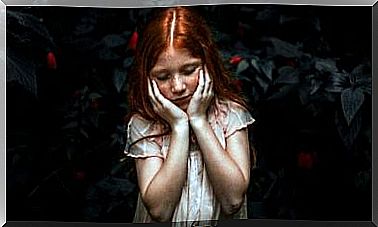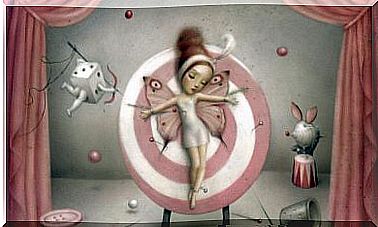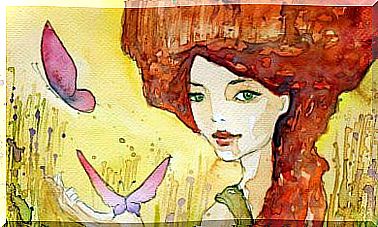Drugs Are Devastating When We Don’t See Another Way Out

We have tried to explain the use and addiction to certain substances from different perspectives, and perhaps each of them is true. One of the most explored is that which includes environmental factors, identified in several studies as risk factors associated with drug use and addiction.
On the other hand, trying to isolate the addictive component of a drug without taking into account the particular circumstances and characteristics in which the addict person lives is a mistake. Indeed, if we want to understand the problem, we are obliged to go beyond the substance itself, with its addictive power, and not forget the person, each person, who consumes it.
In this way we will be able to answer a simple question, which in turn simplifies the idea we want to expose. For example, why are there people who drink alcohol, even on a frequent basis and in large quantities, and do not become addicted to it?
Guinea pigs who only had drugs and those who had slides
We can try to analyze the phenomenon of addiction by taking a cue from laboratory experiments. In the first experiment, there is a caged quarry with two water bottles. One contains only water, while the other contains heroin or diluted cocaine.
In almost all cases where the experiment was repeated, the quarry became obsessed with the bottle containing the drug and went back to drinking more and more until he died. This can be explained by the action of the drug on the brain. However, in the 1970s Bruce Alexander, a psychology professor in Vancouver, revised and reformulated the experiment.
He built a park for guinea pigs (Rat Park). It was a fun cage in which the guinea pigs had colored balls, tunnels to run around, lots of friends and plenty of food; ultimately, everything a rat could want. In the guinea pig park, they both tried the two water bottles because they didn’t know what they contained.
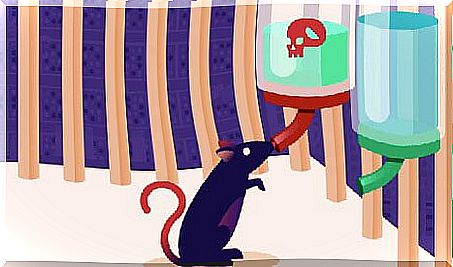
Guinea pigs who led a good life did not fall “prisoners” of drugs. Overall, they avoided it and took a quarter of the drugs taken by isolated guinea pigs. None died. The guinea pigs who were lonely and unhappy, on the other hand, became addicted to the drug and suffered worse fate.
In the first experiment it was not taken into account that the guinea pig could wander around in the cage following basic reflexes and stimuli or simply drink the water with the drug, something that at least required a different motor activity and something to do, regardless of the attraction. that he could exercise the drug on the animal.
In the second experiment, however, an alternative was offered and not just any one : a very attractive, captivating and reinforcing activity. Guinea pigs who had a valid alternative or simply a pleasant routine in their life did not feel the need to continually drink water with a substance that would stimulate their pleasure; or at least they didn’t notice this imbalance.
It was even more surprising to note what happened when, in a third reformulation of the experiment, guinea pigs were introduced who had spent 57 days in cages with the only option of consuming the drug. Once they got over the abstinence and found themselves in a happy environment, they all gave up on drugs.
A good life: the best way not to fall into a bad habit
If you are happy, you will not need to fill a void; if you are unhappy, perhaps you will try to cope with this chemical decompensation through a substance. The nucleus accumbens , the center for the reception of dopamine in the brain and, therefore, for the emission of the feelings of pleasure associated with a behavior, behaves like a king sitting waiting for his subjects; environmental and chemical.
There are very loyal subjects who are constantly looking for goods and possessions for their king, dopamine chemical officials: water, food, social interaction, a good bed to rest on … if furthermore these “goods” are offered individually or restricted in conditions of deprivation, you will get more pleasure.
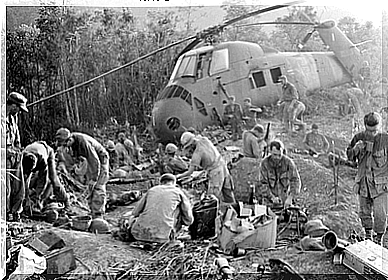
Drugs, therefore, in themselves are not a powerful enough amplifier of conduct if they do not settle in vital clutches that are orphaned of affection, healthy habits or decent work. Perhaps, once established, it can cause dependent behavior, maintained by sheer repetition or / and destruction of life itself, but its starting point is much more complex.
There is an explanation that gives hope and meaning to this problem, a far cry from the moralistic or chemically reductionist views that present the addict as a weak person of character. It allows us to understand that drug addicts could be like the guinea pigs of the first cage: isolated, alone and with only one way out or pleasure at their disposal.
A person who takes drugs, but who lives in a satisfying environment, will not necessarily fall victim to the addiction, because he has the possibility of having other stimuli that activate his own reward system.
In this sense, the solution is to build a “cage” in which to be free. A “cage” in which to have several alternative ways to produce pleasant sensations, so as not to become dependent on one of them. In this circumstance, drugs are bad for us, there is no doubt, but they are even more dangerous when if taken in a context of desperation where a person is unable to see any other possible alternative to which to cling to in order to feel good … because everyone we want to feel good, even if only for a moment.

